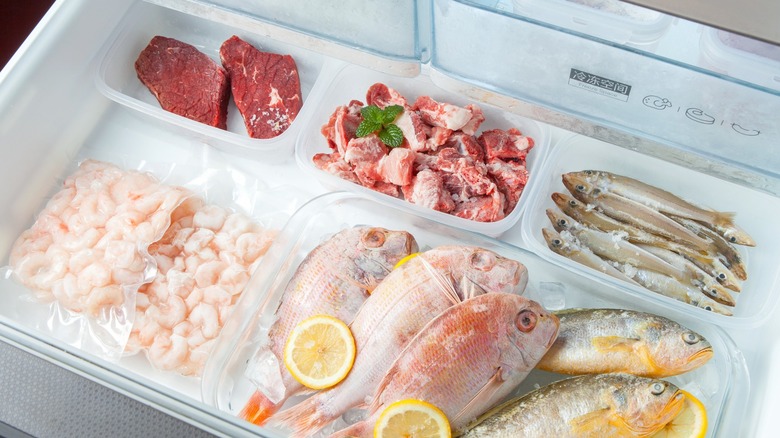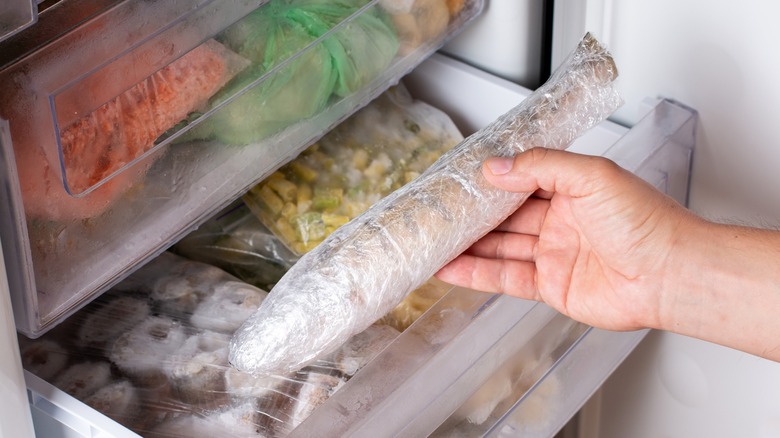How Long Can You Safely Keep Seafood In The Fridge?
While delicious and nutritious, seafood is often more perishable than other types of meat. This means you must be extra cautious about how long you keep it. Moreover, storing it properly in the fridge is an art that every seafood lover or cook should master. Generally, for raw fish and shellfish, the safe period in the refrigerator is one to two days. This short window ensures that the seafood remains fresh and safe to eat. Once you've cooked your seafood, the rules change slightly. Cooked seafood can be kept in the fridge for three to four days, making it convenient for meal prepping or enjoying leftovers. If you don't plan to cook it within this timeframe, it's a wise idea to store it in the freezer.
Speaking of freezing, this method can significantly extend the shelf life of your seafood. According to the US Department of Agriculture, fish and shellfish that are frozen (at 0 degrees Fahrenheit or lower) will remain safe to eat indefinitely. However, for the sake of experiencing the best flavor and texture, it's recommended to consume cooked fish within three months of freezing. For frozen raw fish, the ideal consumption period is within three to eight months, while shellfish should be used within three to 12 months.
Proper seafood storage techniques
Proper storage techniques can greatly affect how long your seafood remains fresh and tasty. It's crucial to store your seafood in the coldest part of the fridge, usually on the bottom shelf near the back, away from the door. This helps maintain a consistent temperature — 40 degrees Fahrenheit or below — which is crucial for freshness. If you're storing raw fish or shellfish, first clean them and pat them dry. Pack in resealable plastic bags with as much air squeezed out as possible. The packing not only helps keep your seafood fresh, but also prevents any cross-contamination with other foods in your fridge. Next, place the sealed raw seafood on a plate or tray with ice and cover it with more ice.
For cooked seafood, wait until it cools down to room temperature before refrigerating. Placing hot food in the fridge can raise the temperature, affecting both the food's safety and the fridge's efficiency. Store the cooked seafood in airtight containers and place it on any shelf apart from the one with raw meats. When it comes to freezing, there's no big difference between cooked and raw seafood. For raw seafood, store it in freezer-safe bags or air-tight containers. For cooked seafood, ensure it's cooled first and then follow a similar process. Finally, remember to label and date your seafood before freezing to help keep track of how long it's been stored.

